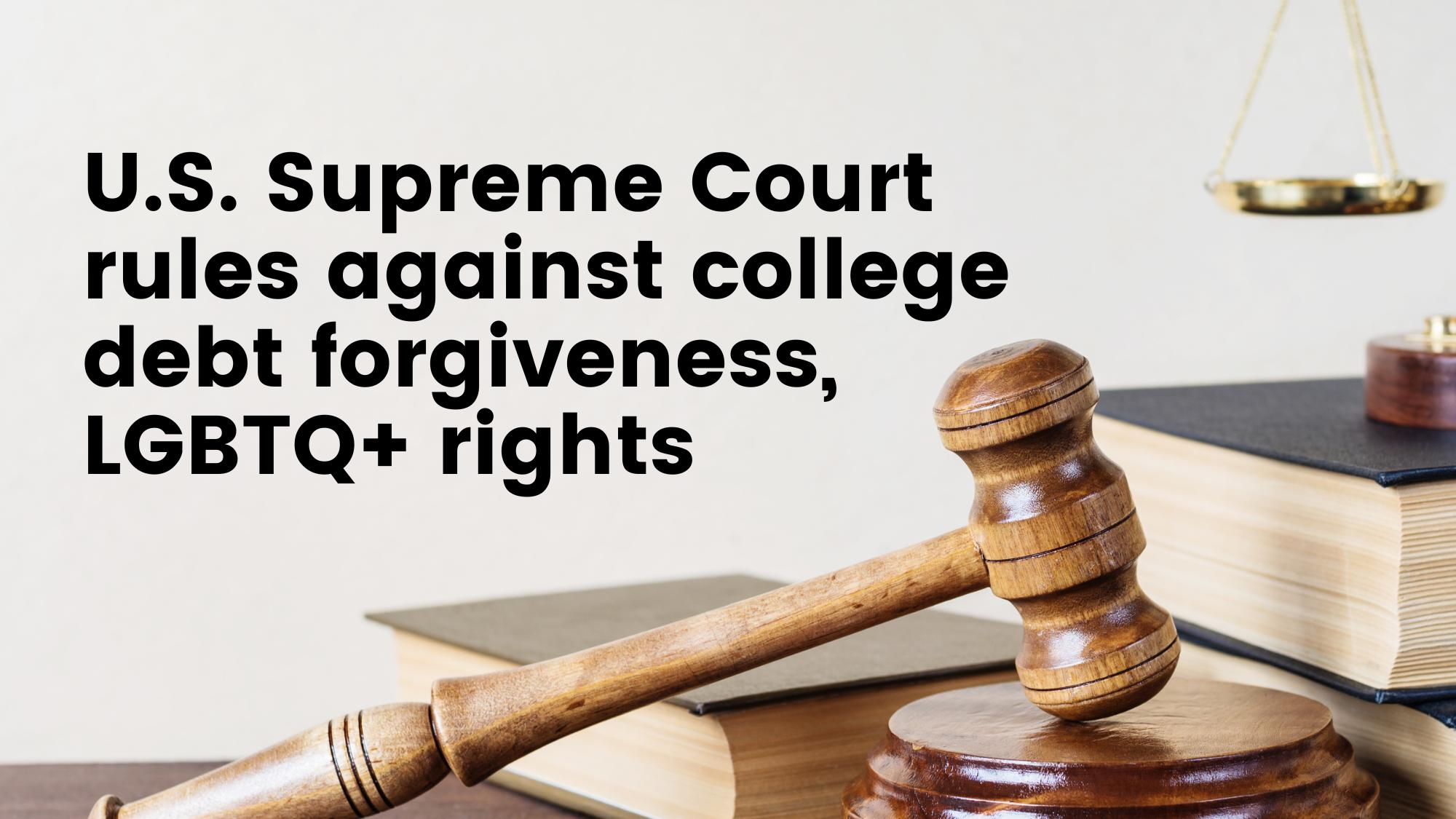Major rulings represent conservative majority at nation’s highest court
Posted: June 30, 2023
In two major rulings Friday, the U.S. Supreme Court struck down the Biden administration’s college debt forgiveness plan and limited protections for the LGBTQ+ community, asserting the power of the nation’s highest court’s conservative majority.
On the final day of its session, the Supreme Court voted 6-3 in the case of Biden v. Nebraska, blocking the Biden administration’s college debt forgiveness plan that aimed to forgive up to $20,000 of college debt for eligible borrowers.
Biden’s crucial initiative aimed to address an estimated $430 billion of college loan debt plaguing government employees, including educators, nationwide. Twenty-six million people had applied for relief under the plan, and $43 million would have been eligible for forgiveness.
College loan debt in the U.S. has reached an unprecedented $1.7 trillion.
National Education Association (NEA) President Becky Pringle said, “The student debt relief plan was meticulously crafted to provide relief to those who need it the most, such as low-income borrowers, veterans, and public servants who have dedicated their lives to serving their communities.
“The court’s ruling not only fails these deserving individuals but also undermines the president’s authority to take decisive action in addressing critical issues affecting the American people,” added Pringle, who heads the largest union in the country.
After a three-year pause due to COVID-19 protections, borrowers will have to begin paying back their federal student loan bills in October. Payments were already set to resume in the fall before Biden’s plan was struck down.
The Supreme Court Friday also voted 6-3 in 303 Creative, Inc., v. Elenis, holding that a wedding website designer has a First Amendment right to refuse service to same-sex couples, even though Colorado state law prohibits discrimination based on sexual orientation, rolling back freedoms and rights of the LGBTQ+ community.
“This is another example of the court’s contempt for democratically enacted civil rights protections and its quest to undermine them in any way possible,” said Pringle, the NEA president.
The decision comes after nearly three decades of the court expanding the rights of LGBTQ+ people, most notably giving same-sex couples the right to marry in 2015.
On Thursday, the Supreme Court issued a third key decision that ends affirmative action in higher education admissions, overruling decades of precedent allowing public and private universities to consider race as one small factor among many in making student admissions decisions.
For more than four decades, colleges and universities seeking to achieve diversity in their student body have been able to consider an applicant’s race, as one of many factors, in the context of a holistic admissions process.
The decision threatens equitable and inclusive admission policies for students nationwide.

